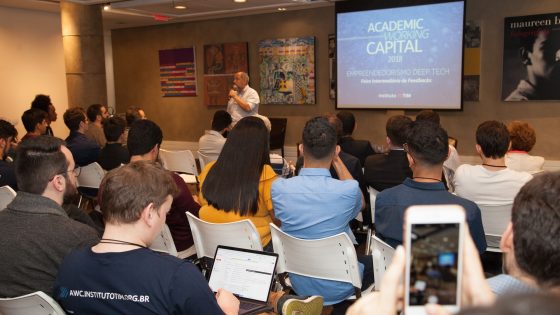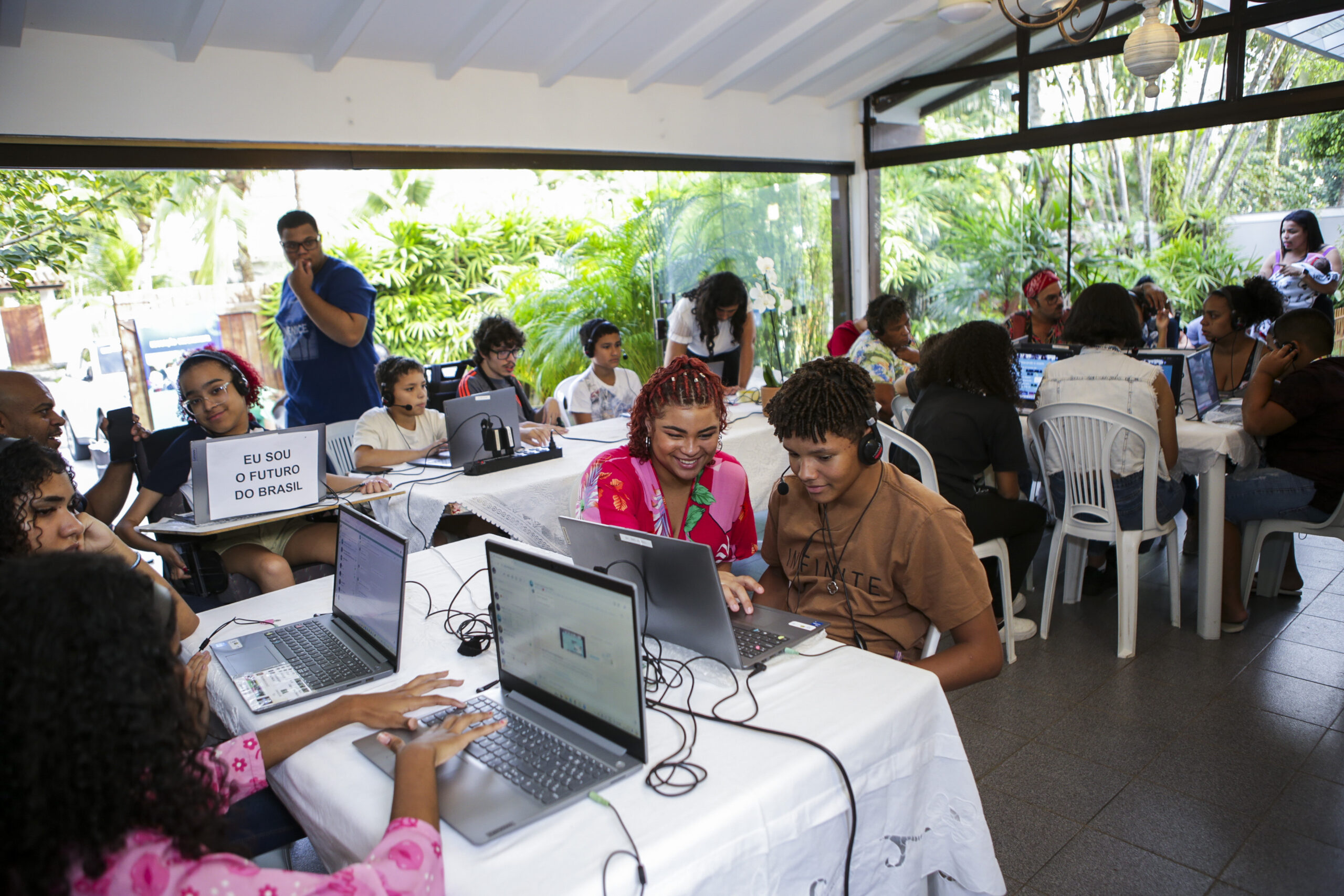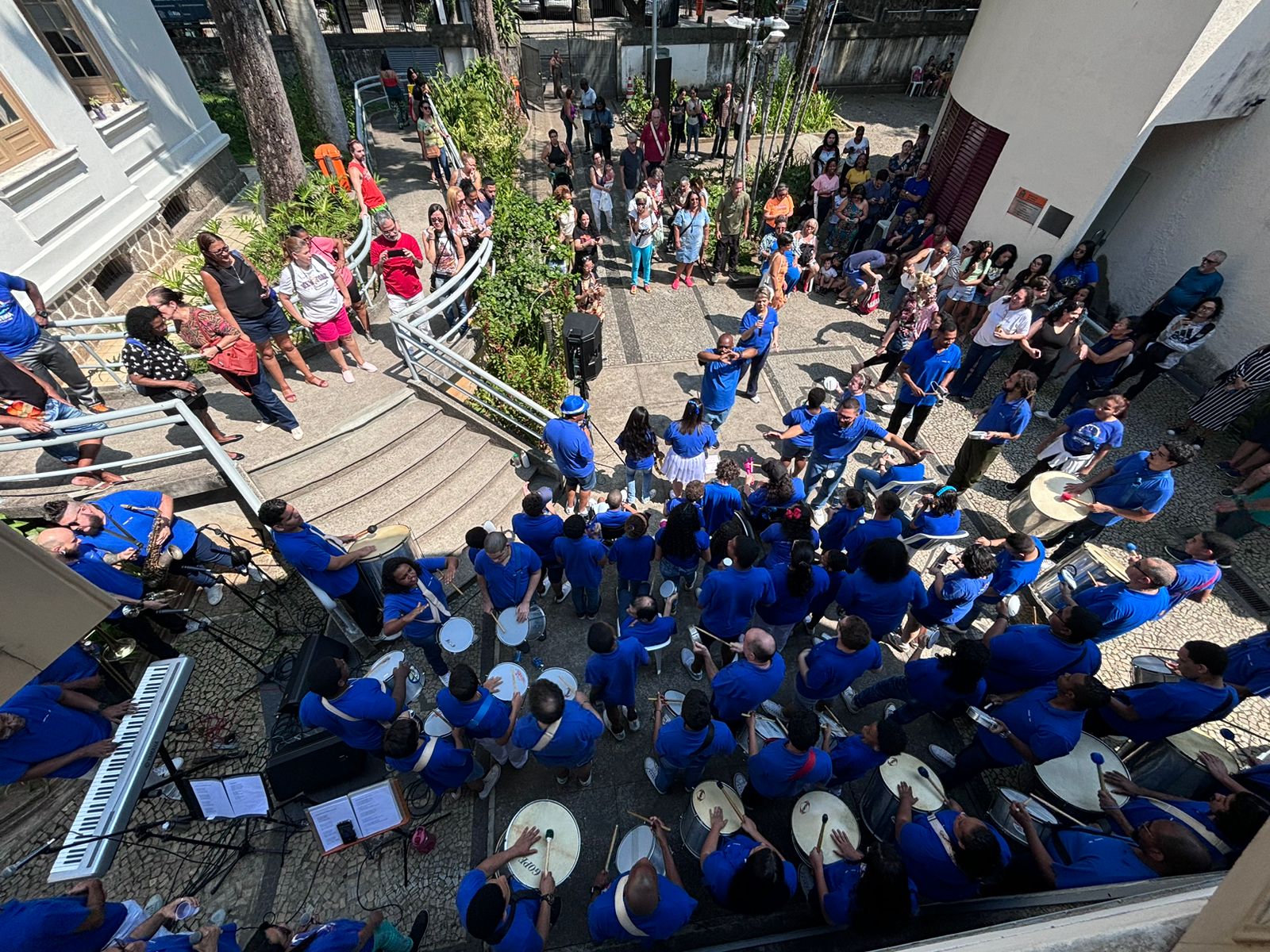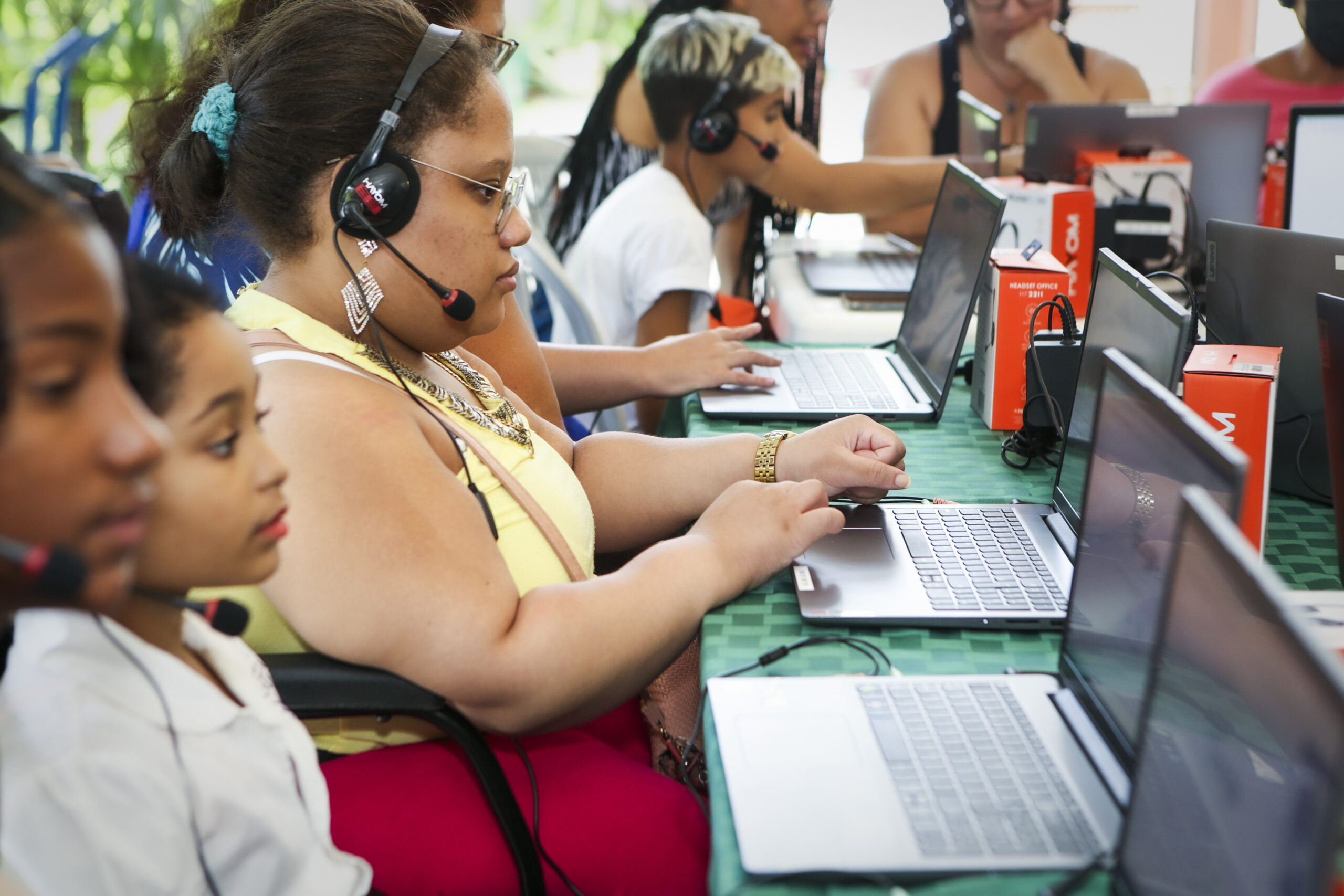
September 16 was the last day of Workshop II of the Academic Working Capital 2018 program – at the same time it was a preview of what will take place at the Investment Fair, which will be held in December.
The second and final day of the Workshop began in the main hall of the Vanzolini Foundation with an introductory talk with participants about investments. Coach Artur Vilas Boas started the day and the conference by bringing up different types of investments, also known as fundings, which the groups could take into consideration. The difference between venture capital funds and angel investors was addressed and the care that should be taken when seeking and receiving an investment. “Investment funds have also evolved alongside the path of entrepreneurship in the country, so today there is a division of types and sizes of fundings according to the maturity of startups,” said Artur when talking about the requirements for each type of investment.
Another theme that came up in this talk was the role of accelerators in the company’s growth process and how to negotiate its equity capital with new investors. “And never forget that the best investors in your companies will always be your customers!,” concluded Artur.

The second talk of the day was given by investor Marco Poli, from the organization Angels of Brazil. He conducted an informal conversation with many points for questions with college students about what a startup’s routine is like and the differences between having b2b (business selling to business) and b2c (business selling to end-consumer) customers. Marco also explained the importance of having the right people for important company activities. “It is a common and repeated startup mistake to want to hire people with little knowledge to manage important areas, so choose your partners and employees well and look for core competencies to run the business,” he added.
After the talks, the students reunited in their clusters to work on the projects. They incorporated the feedback received from the AWC team, mentors and speakers, and refined their ideas with the experiences they gained. Coaches Artur Vilas Boas, Rodrigo Franco, André Dib, Isabela Modesto, and Poli-USP professor Marcos Barretto used the moment to help prepare the groups for the feedback fair. The idea is that, in the afternoon, participants could take the opportunity to present their solutions to a completely new audience, extract more feedback and use it to train their pitches.
In the afternoon, everyone went to the 16th floor hall of the FIESP building, where the Entrepreneurship Festival was already taking place, welcoming AWC groups to expose their projects to the attending audience. At the venue, participants prepared their bases with presentations, prototypes, and a willingness to receive attending friends, guests, and investors, such as Carlos Fenerich and Marco Zili of PoliStart, AWC’s partner. Everyone made an effort to expand their network, validate the user’s pain, and show the figures they had achieved so far.


Before officially ending the day’s activities, Professor Marcos Barretto thanked the attending audience and told them a little more about how the AWC program complements and assists everything that happens within universities. The teacher also praised the groups for using the experience of talking to new people who didn’t know their projects. “Fishing in the open sea is like this, we never know what will happen, talking to a new audience is like this, we don’t know what to expect from the questions,” said Professor Barreto to the students, defining the fair as a place where the audience could ask anything about the projects, that’s why preparing for this new stage is so important for them.
One last surprise awaited AWC 2018’s participants, in a partnership with HackBrasil, 5 groups were selected to participate in an accelerator selection process that will reward winners with a sum of money and also a course in Harvard and the MIT, with all expenses paid. The selected teams were: Centrics, NextCam, HeliDrop, AquaLuz, and ECGP. Now they need to record a video of up to 5 minutes telling their stories and solutions and submit it to the competition. With the end of Workshop II, the groups continue their biweekly follow-up with their coaches and enter the process of building their final prototypes and preparing for the Investment Fair, which will take place in December.

















Originally published in AWC website.






































































































